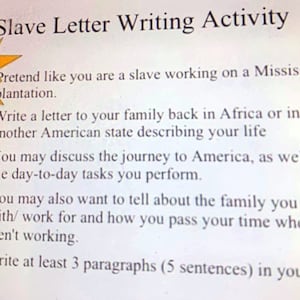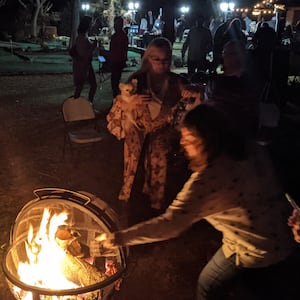TUPELO, Mississippi—The end of her state’s mask mandate could spell trouble for Patti Thompson.
The 65-year-old jewelry store owner has spent two decades fighting a chronic immune disorder called common variable immune deficiency. She jokes that her immune system comes in a jar via weekly home infusions.
“The best way to understand it is to think about the ‘the Boy in the Bubble,’” who had a related disorder, Thompson said, referring to a Houston 12-year-old who became famous before his death 15 days after leaving a literal germ-free plastic bubble in the 1980s. “If we didn’t have today’s technology, I would have to live in a bubble.”
Even before the pandemic, Thompson avoided crowds, carried hand sanitizer, and wiped down microwave handles. Now, without the weight of a state mandate, she fears too many people will ignore public health recommendations and assume the danger is past.
And Spring Break looms.
“I think we’re opening up too early,” Thompson told The Daily Beast.
Gov. Tate Reeves ended the state mask mandate with 24 hours notice last week. Over the weekend, the Daily Mississippian and other media outlets captured photos of bars packed with mostly maskless crowds in Oxford, home of the University of Mississippi. On the Gulf Coast, Margaritaville Resort Biloxi will celebrate its reopening after hurricane repairs with a big party Friday. Masks are requested but not required in the resort’s entertainment center, restaurants, bars, and pool playground.
Unlike in Texas, Mississippi municipalities do have the option to implement their own restrictions. Business owners like Thompson retain power over their own property no matter their location.
“I’m not going to take my mask off,” Thompson said. “I’m asking my staff and customers to mask.”
But with millions of residents unvaccinated and over a thousand Americans dying a day at the hands of COVID-19, Thompson feels far from secure. Her home city of Tupelo will continue to require masks at city-owned facilities but will not re-implement a city-wide mandate after local health officials advised it would be ineffective, according to Mayor Jason Shelton.
“COVID doesn’t recognize the city limits,” Shelton told The Daily Beast in an email. “The Governor’s premature recension of the state mask mandate is akin to turning the water off while still fighting a fire.”
In comments to a Tupelo newspaper, Shelton previously said he was concerned a city mandate would put restaurants and bars at a competitive disadvantage. The leaders of the local hospital, which Shelton referenced in the same outlet, said the lack of mask requirements were likely to erode their use—and that they would have preferred for the state mandate to stay in place.
Some Mississippi cities are making a different call. The state capital Jackson and the college towns of Starkville and Hattiesburg are among those keeping or reinstating mask mandates and capacity restrictions.
Gov. Reeves’ office did not respond to requests for comment for this story.
Like the rest of the country, Mississippi has seen a dramatic decrease in COVID cases since earlier this winter. Earlier this week, Mississippi State Health Officer Thomas Dobbs said the improvement was driven primarily by reduced travel after the holidays, masking, and social distancing.
The seven-day average for new cases was 424 as of Wednesday. By comparison, Mississippi hit a single day peak of 3,500 new cases on Jan. 8. Hospitalizations and nursing home outbreaks are down significantly.
However, Mississippi is still showing signs of community transmission. As of this past week, Mississippi did not meet WHO guidelines for reopening, with a 10.81 percent positivity rate for COVID tests, well above the 5 percent threshold, according to the John Hopkins COVID Resource Center.
State public health officials are still pushing coronavirus prevention measures, making the case that even if Mississippians aren’t required to mask, it doesn’t mean they shouldn’t.
“We are not done with COVID,” Dobbs said.
Public health officials are holding their breath as Spring Break season begins and travel increases. Most of Mississippi’s public universities are bypassing Spring Break in favor of an early end to the spring semester; however, K-12 schools in much of the state will break this week or next.
In Memphis, which serves as a tri-state medical hub, Dr. Scott Strome said he was expecting to see at least a bump in cases across the region. That bump could easily turn into a surge if people ditch face masks and social distancing.
“Spring Break is a perfect example of where that can happen,” Strome, the executive dean for the College of Medicine at the University of Tennessee Health Science Center, told The Daily Beast.
It’s hard to tease out the impact of mandates versus strong public health guidance, Strome added.
“Ultimately it depends on individual citizens,” he said. “If we unmask too early, particularly folks who have not been vaccinated, we could see a surge that is potentially avoidable.”
There is a light at the end of the tunnel, Dobbs argued. Since the end of February, Mississippi has been averaging more than 130,000 doses of vaccines going into arms per week. More than 300,000 people—just over 10 percent of the state’s population—have been fully vaccinated. More than 500,000 Mississippians have received at least one dose of vaccine.
Those vaccination numbers will have to be much higher before Thompson feels like she can go back to pre-COVID routines.
“For me, people wearing masks has been great,” Thompson said.
During COVID, she’s limited herself to her store, home, and the chiropractor’s office. Her husband handles the grocery shopping and other errands. Like most people, she is aching to get back to dinners with friends and family.
“I’m ready to get out of the bubble,” Thompson said.
Mississippi has opened vaccine eligibility to anyone over 50 and those with chronic conditions. But Thompson said it wasn’t clear her barely functioning immune system would respond.
“At this point, I don’t know if I can get the vaccine,” Thompson said.
For just about any vaccine, there will be people like her who remain vulnerable, Strome said. That’s why it’s important to keep masking as vaccination efforts move forward.
“We know we have the tools to knock this thing back,” Strome said. “We need to be patient just a little longer.”







